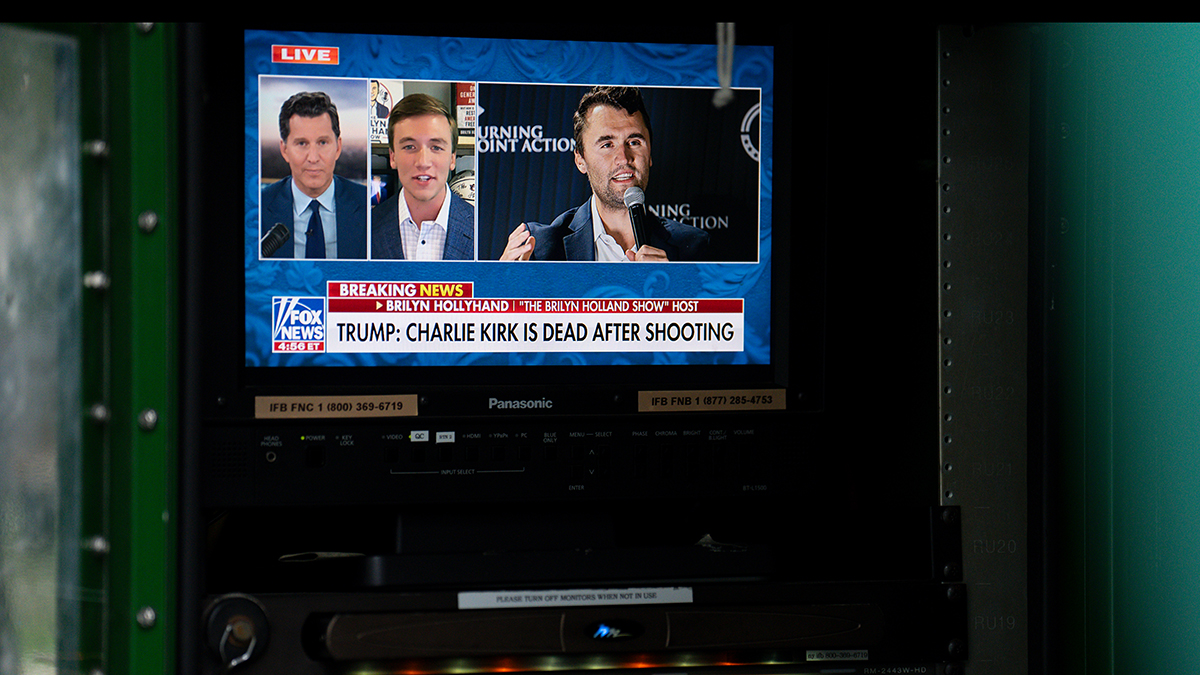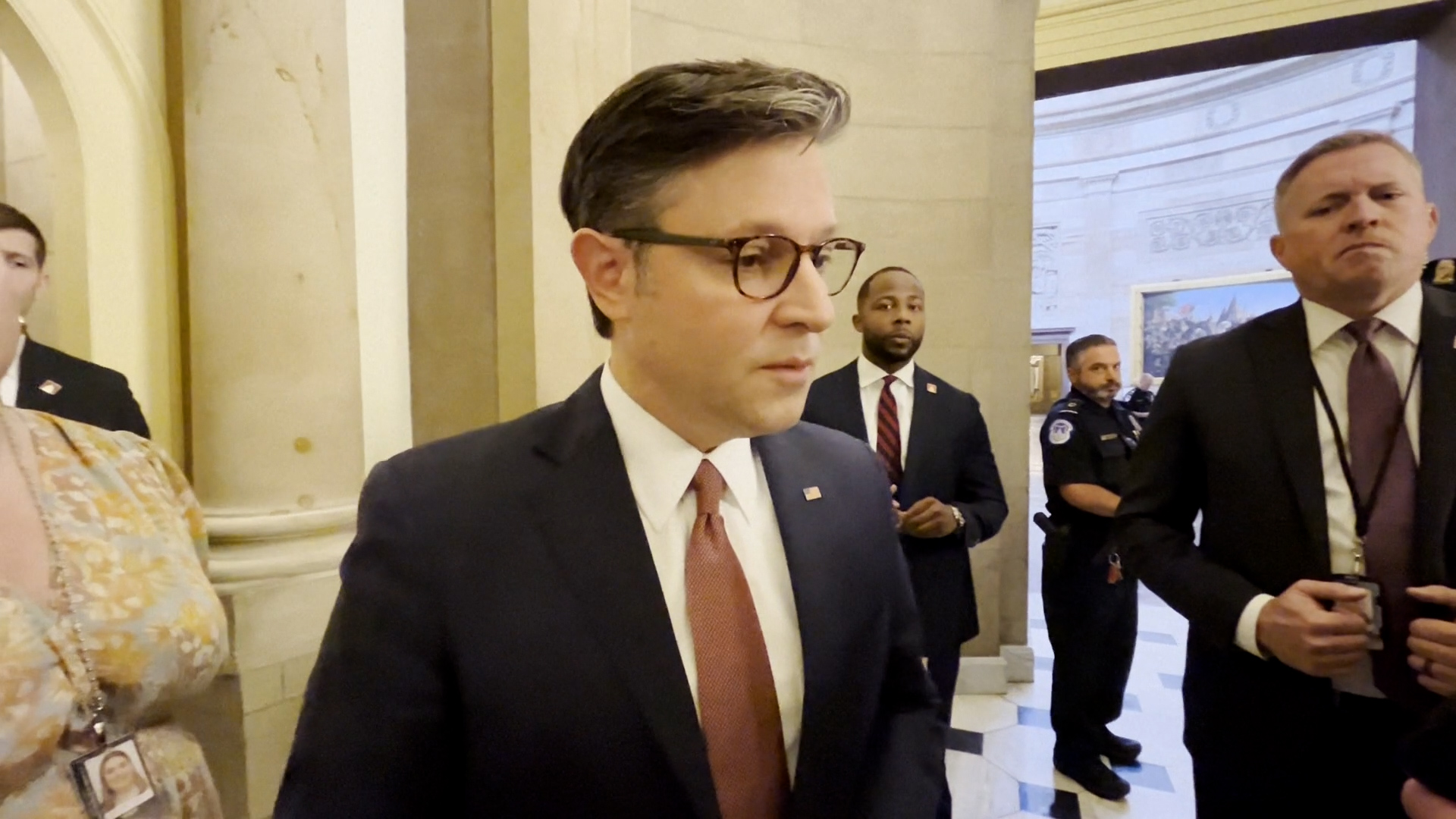The assassination of conservative activist Charlie Kirk is sending shock waves through Capitol Hill, with lawmakers on both sides of the aisle expressing fears for their own safety and taking greater security precautions following a summer of political violence.
Members are beefing up their security, moving public events indoors or canceling them altogether. One is even vowing to carry firearms.
Rep. Alexandria Ocasio-Cortez, D-N.Y., the progressive star who has faced numerous death threats over the years, said Thursday she had postponed two public events planned for this weekend in North Carolina, including a rally in Raleigh set for Sunday.
“From the moment I was elected, I have felt that I accept a certain level of risk in doing this job,” Ocasio-Cortez told reporters. But she added that security protocols for members of Congress are “for a bygone time. … They’re not designed for a digital threat environment era.”
Other lawmakers are saying they won’t hold any large town halls or public events — just small, private events.
Republican Rep. Nancy Mace, who is running for governor in South Carolina, said she is canceling all outdoor and public events for the foreseeable future, including an upcoming speaking gig on a college campus.
An outspoken critic of transgender people and accommodations for them, Mace said she’s been experiencing an uptick in violent threats since a recent floor spat she had with a House Democrat and has requested additional protection from the Capitol Police and House sergeant at arms. Since Kirk’s assassination, Mace said, she also got local police to patrol her district office and plans to start carrying a firearm wherever she can.
“I will have a firearm on my person all the time, and I will have security,” Mace told reporters outside the Capitol.
Rep. Jared Moskowitz, D-Fla., who has faced death threats in the past, said that earlier this year he ramped up his security and stopped holding outdoor events.
“People are scared to death in this building. I mean, not many of them will say it publicly, but they’re running to the speaker talking about security, and that’s a lot of Republicans in there. People are scared, really scared,” he said.
House Speaker Mike Johnson, R-La., said he’s been fielding calls from members concerned since the shooting, and has assured lawmakers that they are undertaking “a very thorough review of the existing options and how we might need to enhance that to ensure members’ security and safety.”
Threats to members of Congress were already on the rise before Kirk’s death. By the end of this calendar year, the U.S. Capitol Police said it is on track to work through 14,000 threat assessment cases involving members, up from 9,000 last year.
But Johnson also acknowledged there are limitations to protecting all 535 members of Congress, pointing out it would cost billions of dollars and thousands of additional police officers to provide a security detail for every member, which is just unrealistic.
“There are many security measures in place for members of Congress, at their homes, at their offices and when they go about. But we live in a dangerous society, and it’s difficult to cover even the president of the United States from every angle,” Johnson said. “The problem, ultimately, at the end of the day, is the human heart, that’s what we’ve got to address.”
Kirk, 31, the co-founder of Turning Point USA who is credited with turning out the youth vote for Donald Trump’s successful comeback in 2024, was fatally shot by an assassin as he addressed a large crowd on the campus of Utah Valley University on Wednesday.
The gunman is still at large, though the FBI has released photos of a person of interest and said it had recovered the firearm used in the shooting.
“Unfortunately, violent rhetoric plus the wide availability of high-powered guns and guns of all kinds equals vicious political violence, and we can control both of those things, but we haven’t,” said one House Democrat who requested anonymity to discuss a sensitive matter. “And on the gun issue, it is going to require serious harm to somebody in a leadership position, or, God forbid, to a loved one, to get them to change.”
Kirk’s death comes two months after an assassin targeted Democratic lawmakers in Minnesota, killing former state House Speaker Melissa Hortman and her husband and wounding another lawmaker and his wife. That attack had already unnerved Capitol Hill, leading to a bipartisan push for enhanced security.
Following the Minnesota shootings, “we had the first all-senators security briefing that I can recall in 13 years here,” said Sen. Tim Kaine, D-Va., who added that he’ll keep doing events with his constituents but that the “minuses” to doing so “seem to be growing.”
At the time, the House sergeant at arms announced that members would be eligible to receive additional funding for residential security and personal security services.
But that money increase is set to expire at the end of the fiscal year later this month, and some members said leadership needs to do more to protect the rank-and-file members.
“We’ve got to re-evaluate what we’re doing. I think we better start taking it serious,” Rep. Tim Burchett, R-Tenn., said. “And our leadership is woefully ill-prepared. … They’re surrounded in their little protective bubble, and they look at us, and it’s been weeks after the last incident before we ever got anything.”
Some voices on social media are calling for retribution against the left, even though the identity or motive of the shooter is not yet known. And many Democrats are taking steps to better protect themselves. Rep. Jim Clyburn of South Carolina, a former top Democratic leader, said on MSNBC on Thursday that his staff has canceled events in Columbia and Charleston this weekend, though he didn’t cancel an upcoming event at a church.
One House Democrat from the Northeast told NBC News that she won’t hold any town halls or large public events because of security concerns. Instead, she holds private, invite-only events with constituents and stakeholders. The lawmaker, who spoke on the condition of anonymity to avoid being targeted, said her family is simply too important.
The U.S. Capitol Police, which fought off a politically motivated and violent mob on Jan. 6, 2021, said in a statement that it has “been operating in a heightened threat environment for a long time.”
“Our officers, agents and professional staff remain focused as they work around the clock,” the agency statement continued. “Although, for safety reasons, we cannot provide specific details about our increased security posture, we continue to work with our federal, state and local partners to carry out our critical mission.”
On Thursday morning during the House vote series, when members often walk outdoors from their offices to the Capitol, there was a noticeably stepped-up police presence outside the building. Security was already tight due to the 24th anniversary of the terrorist attacks of Sept. 11, 2001. But it’s also become more common in recent years for the police to shut down the plaza outside the Capitol during votes because of growing threats against members, as they did Thursday.
Some Republicans argued that members of Congress shouldn’t back down from holding events.
“You can’t give into the violence,” Sen. Josh Hawley, R-Mo., said. “If we all retreat into our private spaces and close our doors and stay behind our locked doors and windows and gates, we need the opposite of that. We need to be able to come together even when we disagree.”
Rep. Thomas Massie, R-Ky., who has received death threats because of his many public clashes with Trump, most recently over his push to release the Epstein files, said lawmakers should take proper precautions but shouldn’t back down from individuals, or even presidents, who are trying to intimidate elected officials.
“I, already this summer, stepped up security because of death threats. Anytime you’re in the news, you just become a bigger target,” Massie told reporters.
“I think it’s meant to instill fear in people. I mean, if somebody just wanted Charlie Kirk to be gone, it would have been easier to meet him at the movie theater or a restaurant,” he said. “This, I think, was a statement by some deranged person, most likely, and we can’t let that person win.”
Sen. Lindsey Graham, R-S.C., grew emotional while speaking to reporters Thursday and echoed that sentiment.
“That’s what these folks try to do, they try to scare you into inaction,” he said. “And I think that that’s the last thing that Charlie would want, is for people to be quiet, whether you agree with him or not.”
Frank Thorp V, Ryan Nobles, Brennan Leach and Rebecca Shabad contributed.

Want more insights? Join Working Title - our career elevating newsletter and get the future of work delivered weekly.










